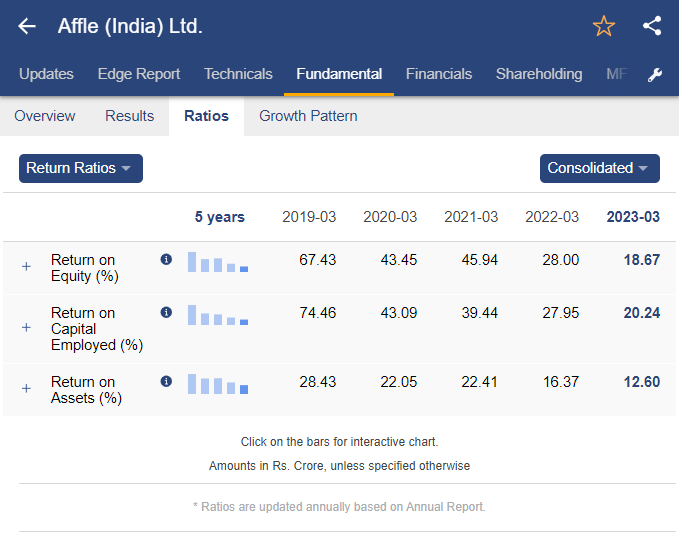Incorporating macroeconomic and Microeconomic factors into an AI stock trade predictor is vital, since they affect market dynamic. Here are 10 ways to assess how well economic factors were incorporated into a model.
1. Make sure to include the most important macroeconomic indicators
Why? Indicators such as the growth in GDP as well as inflation rates and interest rates can have a significant influence on the prices of stocks.
How to review your input data and make sure it includes relevant macroeconomic factors. A set of indicators that are comprehensive allows the model to respond to changes in economic conditions that have an impact on asset classes.
2. Use sector-specific microeconomic indicators to evaluate the effectiveness of your program
Why? Microeconomic factors like company earnings, debt level, and industry specific metrics can have a significant influence on the price of stocks.
How do you ensure the model’s ability to take into account sector-specific variables, such as consumer spending or oil prices for stocks that are in the energy sector, to improve accuracy and granularity.
3. Determine how sensitive the model is to changes in monetary policy
The reason: Central bank policy, including interest rate reductions and increases can have a major effect on the price of assets.
How to: Check that the model is incorporating monetary policy or changes in announcements about interest rates. Models that can adapt to these changes are better able to handle market fluctuations triggered by policy.
4. Analyze the use of leading, lagging and other indicators
What is the reason? Leading indicators can be used to predict future trends (e.g. indexes of the stock market) While lagging indicators is able to confirm these trends.
How do you ensure that the model is using a mixture of leading, lagging, and coincident indicators to help forecast economic conditions and the time of changes. This approach will improve the model’s accuracy in predicting economic shifts.
5. Review the frequency and timeliness of Updates to Economic Data
The reason: Economic conditions shift with time, and outdated data could affect the accuracy of forecasting.
How do you ensure that the model’s economic data inputs are regularly updated particularly when it comes to information that is often released, such as employment numbers and monthly manufacturing indices. Information that is up to date improves the model’s ability to keep pace with economic fluctuations.
6. Verify the integration of News and Market Sentiment Data
Why: Price movements are influenced by market sentiment and investor reaction to economic information.
How to find sentiment analysis components, like social media sentiment scores or news event impact score. Integrating these types of qualitative data can help the model to interpret sentiments of investors, especially when economic news is released.
7. The use of country-specific economic data for stock exchanges in international markets
What’s the reason: Local economic conditions impact on the performance of models that deal with international stocks.
How to find out if your model incorporates country-specific economic data (e.g. local trade balances, inflation) for assets that are not in the United America. This allows you to capture the unique economic influences on international stocks.
8. Check for Dynamic and Economic Factor Adjustments
The reasons: The effects of economics vary over time. For instance, inflation could be more pronounced during times of high inflation.
What should you do: Ensure that the model can adjust the weights that it assigns to various economic factors in accordance with the current economic conditions. Dynamic weighting of factors improves flexibility and shows the importance of each indicator in real-time.
9. Examine for Economic Scenario Analysis Capabilities
Why: Scenario analysis could demonstrate how the model will react to economic events that could occur, like recessions or rate hikes.
Test whether the model can create different economic scenarios and adjust forecasts accordingly. The analysis of scenarios is a way to validate the model’s robustness in different macroeconomic conditions.
10. Examine the model’s correlation between the cycles of economics and stock forecasts
The reason: Stocks can behave differently in different economic cycles (e.g., expansion or recession).
What can you do to check whether your model is able recognize and adjust to the economic cycle. Predictors that adjust to the economic cycle and recognize them as reliable are more in line with market realities.
Through analyzing these aspects, you can gain insights into an AI predictive model for stock trading’s capacity to take macroeconomic and microeconomic variables successfully, which can help increase its accuracy overall and flexibility in different economic environments. Have a look at the top rated stocks for ai blog for more info including best site for stock, stock trading, stock market how to invest, ai ticker, best stock websites, ai ticker, best stock analysis sites, ai company stock, predict stock market, ai stock picker and more.

The 10 Most Effective Tips For Evaluating Google’s Index Of Stocks Using An Ai-Based Trading Predictor
Understanding Google’s (Alphabet Inc.) various business operations as well market dynamics and external factors affecting its performance is important when making use of an AI predictive model for stock trading. Here are 10 important tips for evaluating Google stock effectively with an AI trading system:
1. Alphabet’s Business Segments – Understand them
Why? Alphabet is home to a variety of businesses, including Google Search, Google Ads cloud computing (Google Cloud) as well as consumer hardware (Pixel) and Nest.
How do you familiarize yourself with the revenue contributions of every segment. Understanding the areas that are driving growth will help AI models to make better predictions based upon performance in each sector.
2. Incorporate Industry Trends and Competitor Assessment
What is the reason: Google’s performance may be affected by digital advertising trends cloud computing, technology innovations, as well the competition of companies like Amazon Microsoft and Meta.
How do you ensure whether the AI-model is analyzing patterns in your field that include the rise of online advertising, cloud usage and the latest technologies such as artificial intelligence. Include competitor data for the complete picture of market.
3. Earnings reported: A Study of the Impact
The reason: Google stock may move dramatically when earnings announcements are made. This is especially the case when profits and revenue are anticipated to be very high.
How to Monitor Alphabet earnings calendars to see the extent to which earnings surprises and the performance of the stock have changed in the past. Include analyst estimates to evaluate the potential impact.
4. Utilize Technical Analysis Indicators
What are the benefits of using technical indicators? They will help you recognize price trends, trend patterns and possible reversal points for the Google stock.
How can you add indicators from the technical world to the AI model, for example Bollinger Bands (Bollinger Averages) and Relative Strength Index(RSI), and Moving Averages. They can be used to provide the best departure and entry points for trades.
5. Analyze Macroeconomic Factors
Why: Economic conditions, such as inflation rates, consumer spending, and interest rates can have a significant influence on the revenue from advertising and overall business performance.
How to ensure your model incorporates relevant macroeconomic factors like the growth in GDP and confidence of consumers. Understanding these variables increases the capacity of the model to forecast.
6. Implement Sentiment Analysis
What’s the reason? The mood of the market has a huge impact on Google stock, particularly opinions of investors regarding tech stocks as well as regulatory scrutiny.
Make use of sentiment analysis in newspapers or social media, as well as analyst reports in order to gauge public perceptions of Google. Including sentiment metrics in the model can provide additional context for the predictions of the model.
7. Monitor Legal and Regulatory Developments
Why? Alphabet is subject to scrutiny due to antitrust laws, rules regarding data privacy, as well as disputes regarding intellectual property rights, all of which could affect its stock price and operations.
How to stay informed about relevant legal and regulatory changes. Make sure the model includes the potential risks and impacts of regulatory actions in order to anticipate how they might affect Google’s operations.
8. Do backtesting of historical data
What is the benefit of backtesting? Backtesting allows you to assess the effectiveness of an AI model using historical data on prices as well as other important events.
How: Use old data from Google’s stock in order to backtest the model’s predictions. Compare predicted results with actual results to establish the accuracy of the model.
9. Measuring Real-Time Execution Metrics
What’s the reason? A successful trade execution will allow you to capitalize on the price movements in Google’s shares.
How: Monitor execution metrics such as fill and slippage. Analyze how well Google’s AI model can predict the best entry and departure points, and ensure that trade execution is in line with the predictions.
Review Position Sizing and Risk Management Strategies
How to manage risk is essential to protect capital, in particular the tech industry, which is volatile.
How to: Ensure that your model incorporates strategies based upon Google’s volatility, as well as your overall risk. This can help you minimize losses and maximize returns.
By following these tips, you can effectively assess an AI predictive model for stock trading to understand and forecast movements in Google’s stock, ensuring it is accurate and current with changing market conditions. Check out the most popular stock market today recommendations for site tips including ai to invest in, best stocks for ai, ai stock price prediction, ai and the stock market, ai stock companies, top stock picker, predict stock price, ai to invest in, best stocks in ai, stock market investing and more.

Leave a Reply